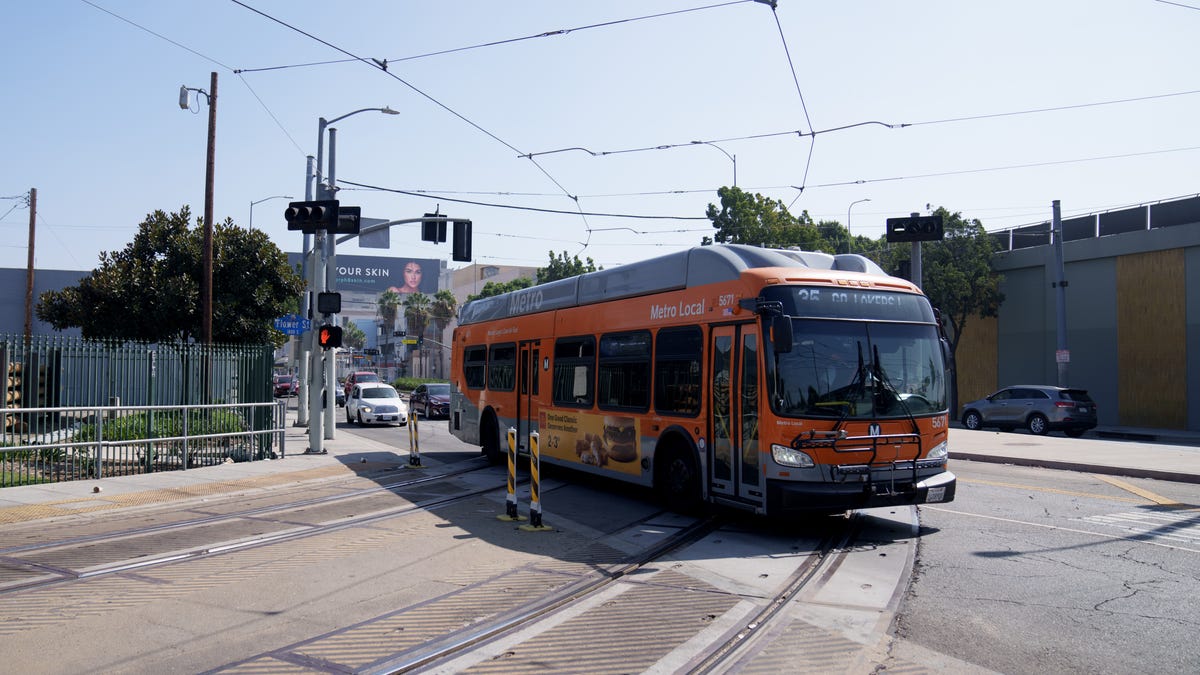Artificial intelligence is an intimidating technology that’s held an increasingly influential and still unproven role in our lives, and now Los Angeles is spending $11 million to install 100 AI cameras in buses to ticket vehicles illegally parked in bus zones. Testing for this program is slated to begin this summer and is expected to go live by the end of the year. Los Angeles Metro, the organization that operates LA’s city buses, insists that it is doing community outreach to make sure the public is aware of the purpose, timing, and impacts of the program, but as someone who lives on one of the bus routes slated to get AI cameras, I haven’t heard a peep.
According to LA Metro, once cameras are installed there will be a 60-day warning period for drivers, where any violators caught on camera blocking bus lanes or bus stops will receive warning citations instead of real tickets. This method of notifying the public of the impending crackdowns seems like an intentionally half-hearted approach that will leave most residents without knowledge of the program’s implementation. If LA Metro really wanted to inform residents about the new procedures, it should send an email out to LA residents or a text to warn them that new and more aggressive processes will be implemented.
The program is designed by Hayden AI, a private AI company who is making $11 million from the deal with Los Angeles Metro. Hayden AI claims implementation of its cameras and software will increase ridership, improve bus times, and address mobility concerns. Cameras will be mounted inside Metro bus windshields, and will constantly scan for illegally parked cars, but according to Hayden AI’s chief growth officer Charles Territo, it will only record when a potential violation is observed. According to the Los Angeles Times,
“If the bus is moving and there’s no vehicle parked in the lane, it’s not recording any data,” [Territo] said. “Only when the system observes a vehicle parked illegally in a bus lane or a bus stop does it record the license plate and capture video of the event.”
Once a recording is made, it will be submitted to L.A. Department of Transportation where a human will assess whether a ticket should be issued.
The use of video imaging to enforce parking violations was legalized in 2021. Video that does not include a parking violation must be destroyed within 15 days, the law states. Any recording of a parking violation can be retained for six months, or 60 days “after the final disposition of the citation.”
LA Metro’s $11 million contract with Hayden AI started in December of 2023 and is supposed to last about five years. When vehicles block bus stops, it creates accessibility issues for riders with disabilities, and vehicles blocking bus lanes slow service. Addressing these violations should help to streamline LA’s notoriously underdeveloped public transportation system which is a good thing, but LA Metro should make a more concerted effort to inform the public of the new methods of enforcement.

